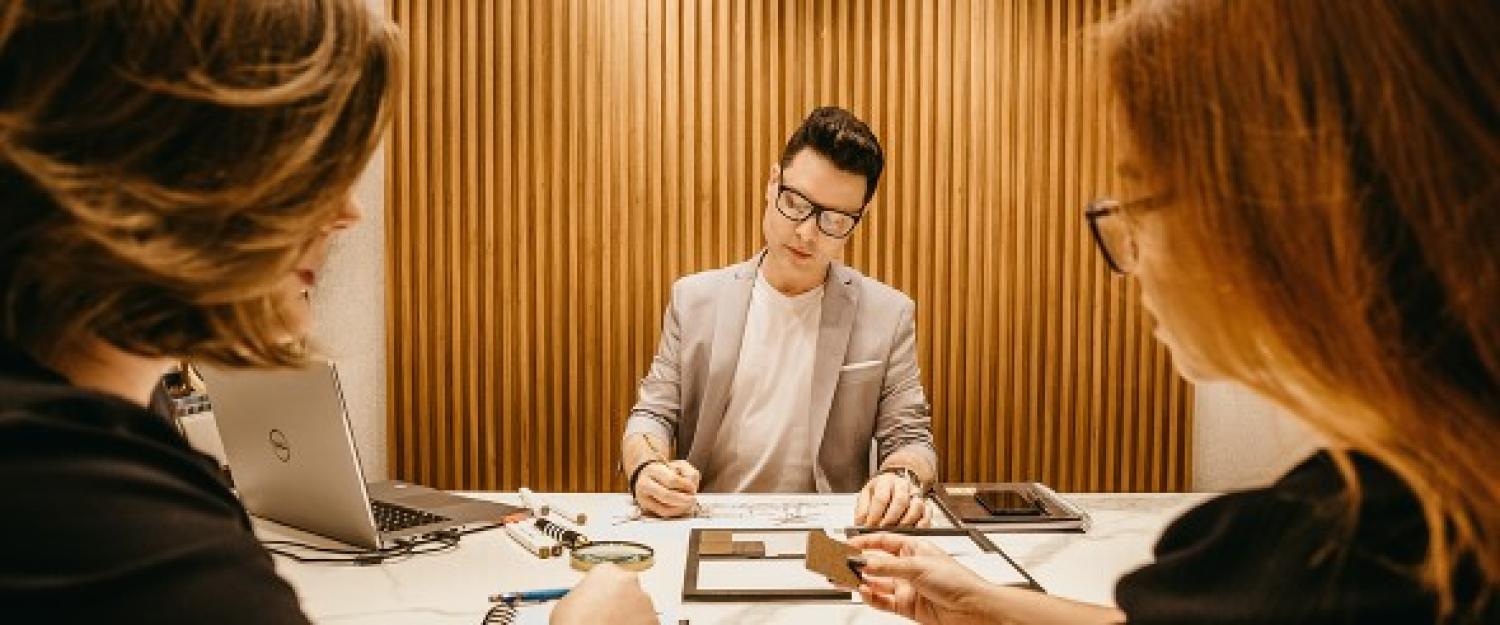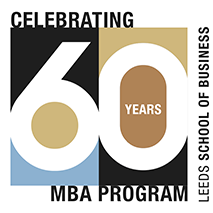How to Land an Internship

As we wrap up 2020 and head into the New Year students and businesses are looking ahead to summer internships and projects. For many businesses spring semester is a critical time to make plans and Leeds students who want to work in smaller, local or fast moving industries have many options. And if summer 2020 taught us anything, it is that students can be proactive in making their own opportunities - whether that means creating a project or networking into a paid position.
Internships come in all shapes and sizes
Two companies, Sana Packaging and rePlant Capital, who hired interns for the first time in 2020 both turned to Leeds to find the right fit.
James Eichner (MBA ‘17), co-founder of Sana Packaging, had been wanting to bring on an intern for some time. As alumni, James and his co-founder Ron Basak-Smith (MBA ‘17) knew they could count on a Leeds student to handle a small start-up where everyone wears multiple hats. They first met their intern, Galen Kuney (MBA ‘21), when he introduced himself to Ron after a Leeds lunch-and-learn event. When they were ready to hire, they reached back out to Galen and offered him the position. Galen worked on restructuring their inventory management system, worked closely with supplier and manufacturing partners, wrote several blog articles and op-eds, contributed to marketing and branding projects, and participated in weekly team meetings. James says Galen “was a match made in heaven. Bringing on a Leeds MBA intern was an incredible value-add for Sana Packaging.”
Robyn O’Brien, co-founder of rePlant Capital, and her co-founders are focused on raising money for their Soil Fund and wanted an intern to take on project work necessary to get systems up and running. She reached out to Leeds because she has had first hand experience teaching, serving on the Natural & Organic Roundtable advisory committee, and speaking to students so she knew the quality of the students well. After advertising the position and reviewing resumes, rePlant Capital hired Evan Godfrey (MBA ‘21) to manage their salesforce database. Robyn says Evan “took command of the projects to which he was assigned and taught the co-founders so much in the process.” Evan has made a contribution while also learning about the mechanics of impact investing.
Although very different from one another, both companies wanted interns who could be flexible, work independently, and who had a mix of analytical and interpersonal skills. They were less concerned with whether their intern already had specific experience, and more interested in the commitment their intern demonstrated to the industry.
Creating your own project
Another possible option for students is to create your own project. Last summer, Leeds marketing instructor Heather Kennedy launched the Food Insecurity Project to do just this with a group of nine students affiliated with CESR. With Heather’s guidance the student team investigated the prevalence of food insecurity in the Boulder community. They identified existing resources, analyzed gaps in service and proposed ways to help improve access to food for those in need.
This project provided a meaningful experience for a group of committed Leeds students. It gave them the chance to put their analytical skills into practice in service of an issue they all cared deeply about. At the end of the summer, the students presented their findings to Leeds staff and received feedback on their work. Some of the students then contacted the Leeds Social Impact Consultants (LSIC) student club and parlayed their summer work into a semester-long project that was able to go deeper and establish durable impacts.
Self-designed projects and independent study show initiative, resourcefulness and commitment to potential employers. They give students an opportunity to build their networks. And they result in a concrete example of applied learning which can set students apart. Whether pursuing a project with a faculty mentor, or designing a micro-internship, self-directed initiatives can lead to unexpected opportunities.
Adopt a Business Buff
Through the Career office, students can also access alumni and other community members for mentoring during the internship and job hunting process. For students graduating into the current dynamic job market, the Adopt a Business Buff program provides assistance navigating the unanticipated hurdles and challenges resulting from the pandemic. Launched in summer 2020, this program was designed to match seniors, MS and second-year MBA candidates with alumni and community members who could assist with networking, internship and job placement.
During the summer of 2020, 65 students from Leeds signed up as mentees and were paired with a mentor. The program was so successful that it was covered in the Wall Street Journal twice. A recent article talks about the experience that Reed Crowson (MBA ‘20) had with his mentor, Jeremy Frenkel (MBA ‘12).
Michelle Ried (BA/BS '10), a CESR Advisory Board member who has mentored a number of students over the years felt that as a mentor the Adopt a Buff program was especially rewarding. She said, "I enjoyed coaching a student through what interviews to accept, what is important in a post-graduation job, and negotiating job offers." She believes that the program was especially valuable right now as students understand that opportunities may be more limited than pre-pandemic, and are driven to make a great impression when the opportunity arises.
Advice from business leaders
Whatever career path students are considering, business leaders have some common advice: stay focused on what matters.
Robyn O’Brien wants students to know that she hires for passion as much as for technical skill. “What are we looking for? Passionate change-agents who bring a unique skill set and discipline to our fast-paced, world-changing team!” Chip Coe (BA ‘83), SVP of Wolverine Worldwide, Inc. and President of Cat Footwear, also counsels students to do work they care about and not worry too much about the next step in their careers. He encourages students to focus on the difference they are making in their current role. Peter Riccio, CFO of Yasso, agrees that students should build on their sense of purpose. Peter believes that all of the experiences students have in their work lives can lead toward meaningful impact, so long as those have a strong connection to students’ values.
James Eichner encourages students to start reaching out early. While James is primarily thinking about startups like Sana Packaging, his advice can also be true for more established companies: “nothing is going to happen unless you make it happen.” Michelle Ried agrees. She advises students to "Take initiative. If I was a student, I would identify a few target companies, and put together an internship proposal. Many companies are trying to push forward so they are poised when the economy recovers, and an internship could provide additional, educated labor, at an affordable cost. It's a win-win!"







